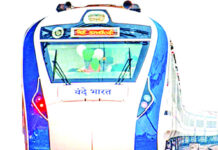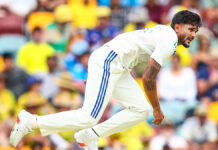Expressing concern over increasing incidents of drunk-driving, the Madras High Court has directed the Centre to amend section 185 of the Motor Vehicles Act so that there is a zero tolerance policy when it comes to such occurrences. ” ..The time has now come for just such a measure. Too many lives have already been lost to this lethal cocktail of internal consumption and internal combustion,” Justice R Mahadevan said. Section 185 of the Act prescribes that whoever while driving or attempting to drive a motor vehicle has in his blood alcohol exceeding 30 mg per 100 ml of blood detected in a test by a breath analyser shall be punished with imprisonment of 6 months or with fine or both. The judge gave the directive while setting aside an order of a Motor Accident Claims Tribunal fastening 60 per cent contributory negligence on the part of the insurance firm and awarding Rs 39,500 to a person in a road accident case in which the victim was in inebriated condition at the time of accident. “…. since Section 185 is placed in Chapter 13 of the Motor Vehicles Act, the Central Government is to consider a suitable amendment in this regard by allowing various State Governments/Union Territories to adopt a zero tolerance norm in Section 185 itself…,” the court said while dismissing the petition of K Shanmugham, the claimant. The judge said clause (f) of sub-section 1 of section 19 of the Act with clause (16) of Rule 21 of the Central Rules says upon registration of an offence under section 185, the power to suspend the driving licence under section 19 can be exercised by the licensing authority. The licensing authority would have to invoke the power in the cases of violation of clause (a) of section 185. The exercise of the power of the section may have the desired deterrent effect, the judge said. “The state governments will have to issue appropriate directions to ensure that there is proper coordination between the police and the licensing authorities so that an action of suspension of the driving licence is initiated immediately after the offence is committed,” the judge added. The judge said while section 185 prescribes the so-called limits, it was duty-bound to observe that these limits seem to be theoretical. Observing that the effect of alcohol on an individual can vary widely, the judge said factors such as overcrowded roads, pedestrian movement, absence of sufficient sidewalks or pavements, a general indiscipline and indifference to traffic regulations should also be considered. “…and the fact, too, that our roads and such few sidewalks used by hawkers during the day and by the poorest of the poor at night.” “This makes drunken driving all the more dangerous, and this court does not think that it is possible to ignore these conditions, especially given our experience with fatalities caused to third parties by reported incidents of drunken-driving. It is not possible to countenance an argument that any person has a fundamental right to drink, let alone to drink any amount and then get behind the wheel of a motor-car or onto a two-wheeler. Even the most minute impairment caused by alcohol intake might have the most disastrous consequences, the judge pointed out.

Dogra Herald is the media of J & K, breaking language and geographical barriers, connecting J & K to the rest of India.
0191 245 4946
info@dograherald.com
Latest articles
JU Volleyball Women team enters Pre-Quarterfinals
iamjkstarr - 0
the University of Jammu Volleyball (W) team reached Pre-quarterfinals in the ongoing North Zone Inter-University Volleyball Tournament 2019-20 organized by the Kurukshetra University, Kurukshetra...
Jammu: One killed in wall collapse
iamjkstarr - 0
One person was killed when a retaining wall of the Government Medical College collapsed on Sunday in Jammu and Kashmir’s Rajouri due to heavy rainfall.
IMD weather update: Heatwave warnings in Bengal, Bihar, Odisha; Mumbai reels under 2nd heatwave of season
NEW DELHI, Apr 29The Indian Meteorological Department Monday issued ‘heatwave’ and ‘severe heatwave’ warnings in several states from West Bengal to Uttar...


























